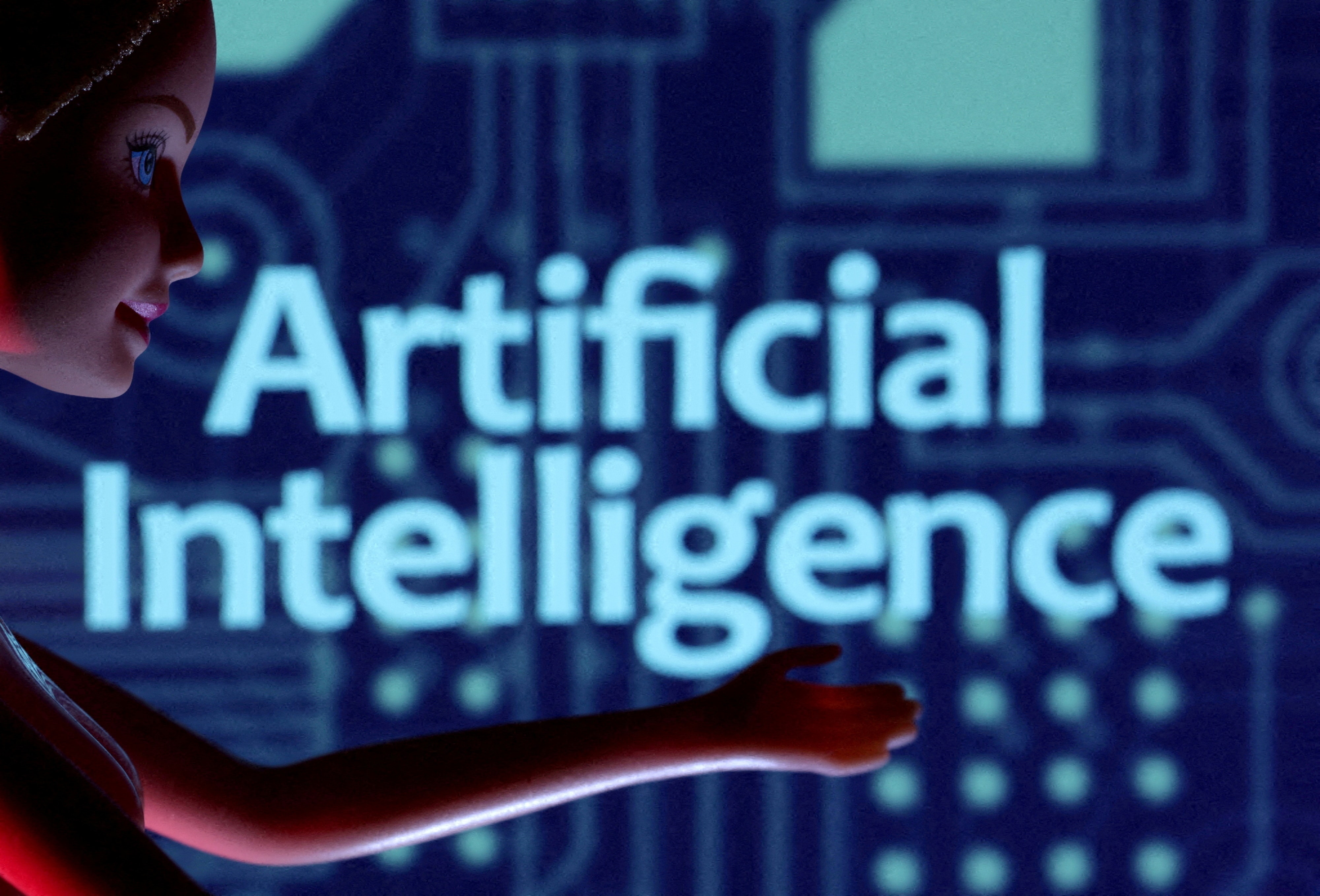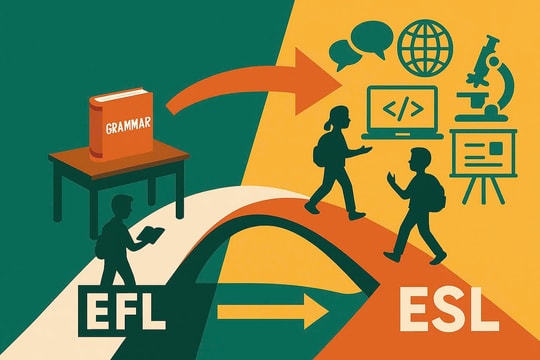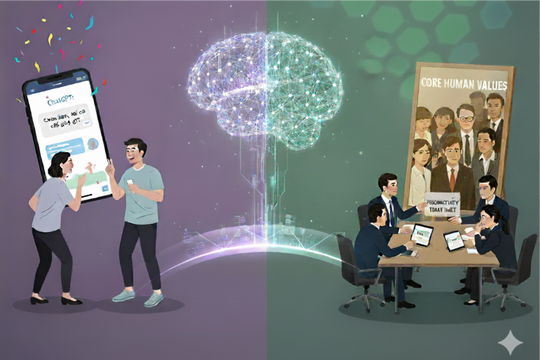Top 12 concerns that artificial intelligence poses to humanity
(Baonghean.vn) - The rapid development of artificial intelligence (AI) technologies in recent times has raised special concerns for developers, researchers and policymakers.

In early December 2023 in Singapore, 40 delegates from around the world, including developers, researchers and policymakers gathered to attend a Conference to discuss pressing issues related to AI technology development.
Here, technology experts mentioned many existing concerns and controversies that have arisen since the emergence of AI with human-like intelligence in recent years. The opinions of technology experts will be a reference point to orient research goals and decide on AI development policies on a global scale.
Here are the top 12 concerns AI poses for humanity that were finalized after a three-day conference of global experts held in Singapore.
1. Can AI be trusted?
AI systems are increasingly used to assist humans in making important decisions, but current AI systems sometimes “hallucinate” and produce inaccurate results. Reliability represents the ability of a system or its components to perform its designed functions under specified conditions for a specified operating period.
Trustworthiness is particularly important to ensure that AI systems are less likely to cause harmful consequences when applied to self-driving cars or decisions on the operating table.
Delegates agreed that an AI system should be tested in situations as close as possible to the tasks it will perform in real life, and that developers should build AI tools that do not focus solely on statistical performance. Standardized standards for assessing the reliability of AI models also need to be designed.
2. Need to create good datasets for AI models
Powerful AI models are powered by large datasets that help them make the right analyses and decisions. However, building good datasets that support useful AI is challenging, especially when the data is sensitive and protected due to privacy concerns.
To achieve this balance, regulation needs to encourage the creation and transmission of data, ensure that databases are of high quality, and ensure that data are exchanged securely.
3. Will AI kill us?
Among the most dire scenarios listed, AI has the potential to cause global-level threats such as global warming or AI-powered nuclear genocide. Delegates noted that widespread social harm and AI-powered cybercrime are already occurring, and that AI-driven economic collapse is a near-term possibility.
Countries must set clear warning signs across multiple sectors, developers must be subjected to rigorous testing, and critical systems must be stress-tested before they are linked to AI.
4. Are there strict solutions needed to control the development of AI?
Laws need to catch up to ensure that AI risks don’t slip through gaps that current policies don’t address. Authorities also need to establish ways to report violations and clarify who is responsible for AI risks.
Regulators must also strike a balance so that regulation does not stifle innovation and provide frameworks for when the law should intervene to suppress AI.
5. Developing AI to serve scientific research
AI holds the key to solving some of humanity's most difficult problems and has the potential to develop cures for diseases as well as create tools to combat climate change, something delegates said should be a top priority for AI builders for the benefit of humanity.
The development of AI to serve scientific research is extremely important and needs to be promoted by increasing cooperation between countries and international organizations to share funding and knowledge.
6. Can AI learn like humans?
AI can learn things very quickly, becoming more and more "intelligent", better meeting human needs, however, in the end, machines still cannot understand what they have learned and think like humans.
No AI system currently has the ability to learn naturally like humans. The human brain is more adaptable and responsive than any AI system. While AI can automate many tasks and processes, there are still many tasks that require creativity, flexibility, and the ability to make complex decisions based on intuition and experience that only humans have.
AI systems lack the creativity of humans, they can only work with the data set they receive. Therefore, they cannot think of new ways, styles or models of working and are limited to certain human-created patterns.
On the other hand, humans can think outside the box, source information from various sources, and create solutions to complex problems with little or no data. Since AI does not possess the ability to think outside the box and generate creative ideas for innovation, AI cannot replace humans in the workplace.
7. What is the value of AI?
AI is predicted to continue to grow in the future, with advances in technology and algorithms. It will become increasingly intelligent and flexible and can be applied more widely in many different fields from medicine, education, manufacturing, business to scientific research. In addition, we will also see the development of collaborative AI systems, in which many AI systems work together to solve complex problems.
Artificial intelligence will continue to evolve and become an integral part of life in the future, so understanding and making good use of AI is the key to progress and prosperity in this increasingly digital world.
8. Competition and fair access
AI technology is often developed by large technology corporations around the world and these corporations operate mainly for profit. Technology experts say that the concentration of AI technology in the hands of profit-driven corporations can affect the price and quality of AI systems, and at the same time, has the potential to limit access to AI for some communities.
To create fairer competition, delegates called for lowering barriers to entry to promote the development of AI systems. At the same time, they proposed regulating AI providers similar to telecommunications service providers and public utilities.
9. AI used for learning
The advent of AI has ushered in a new era in education, changing the way we learn and research. AI has made learning more personalized, effective, and engaging.
One of the most significant benefits of AI in learning is personalization. AI-powered systems can analyze a learner’s learning style, strengths, and weaknesses and tailor learning materials accordingly. This personalization approach allows learners to learn at their own pace, improving their confidence and learning outcomes.
In addition, the AI system helps parents receive immediate feedback on their children's learning results. AI can also take on tasks such as grading, helping students study, and even tutoring students. The AI system can be programmed to provide specialized knowledge, a place for students to ask questions and search for information. Teachers will have the role of support when students encounter difficulties, providing human-to-human interaction.
However, to achieve the above benefits, AI systems must be truly trustworthy, the datasets provided to AI systems must be highly accurate and always updated.
10. Crack down on fake news
Writing tools and image generators have made AI-generated misinformation increasingly difficult to detect. Misinformation can spread rapidly through social media platforms.
Delegates called for ways to identify sources of information online and for social media platforms to be forced to monitor their channels. Algorithms need to be trained in languages other than English to accurately detect misinformation on global platforms.
11. Developing AI for social benefit
The development of AI must be for the benefit of all, which requires safeguards based on human rights, transparency and accountability.
Delegates called for a voice from non-profit organizations, governments and social enterprises to promote the assessment of the social impacts of AI technology. AI developers should not rush to deploy the technology but must closely evaluate its impact and avoid wasteful investments.
12. Safety standards
Currently, countries and international organizations have not yet agreed on standards for testing AI safety during development. These include assessing the potential for security concerns and economic or psychological damage.
Delegates called for global cooperation in developing safety standards for AI systems to ensure AI realizes its full potential, while preventing and minimizing harm.







.png)

